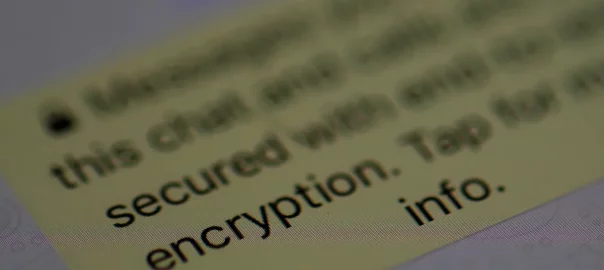Mallory Knodel,Ryan Polk,Sheetal Kumar
Published: October 05, 2022 | Center for Democracy & Technology
Mallory Knodel is Chief Technologist at the Center for Democracy and Technology, Ryan Polk is Director of Internet Policy at Internet Society and Sheetal Kumar is Head of Global Engagement and Advocacy at Global Partners Digital.
At the Human Rights Council in Geneva last month, the Office of the United Nations High Commissioner for Human Rights (OHCHR) presented the strongest endorsement of encryption yet by the world body in its report on privacy in the digital age, underlining that the technology that leverages cryptography to secure communications, is crucial to the rights to privacy, access to information, and free expression in an online world.
“Encryption is essential if people are to feel secure in freely exchanging information with others on a range of experiences, thoughts and identities, including sensitive health or financial information, knowledge about gender identities and sexual orientation, artistic expression and information in connection with minority status,” it said.
Yet despite its undeniable importance, governments continue to attack encryption through legislation that bans or weakens strong encryption. Within the last year, India adopted a regulation that mandates “identification of the first originator of the information,” a traceability requirement incompatible with encrypted systems designed to preserve confidential communications. Bangladesh seeks to pass a copycat regulation, imposing traceability in addition to overbroad content moderation requirements that would block anything that is “insulting,” “harmful,” or “offensive,” even in encrypted environments.
Similar anti-encryption laws have been proposed even by governments that champion human rights and have made public statements in favor of strong encryption. The European Commission proposed a regulation that would mandate content moderation of imagery and content associated with child abuse, but doing so would undermine the security and privacy of all internet users. A regulation in the UK, if enacted, proposes similar policies that break encryption.
These measures are not only fundamentally disproportionate in their infringement of human rights, they are also directly counterproductive to their stated aim of making the internet safer for all.
We formed the Global Encryption Coalition to stop these harmful measures. With over 300 members including encryption providers, cryptography experts, and local and global partners in 95 countries, we inform policymakers about the importance of encryption, and how problems such as violent extremism and terrorism can be addressed without compromising encryption.
We remind policymakers that proposals that would weaken encryption would weaken human rights, including the rights of children and youth. Content moderation technology is far from perfect and its current capabilities are often overstated by platforms, and we help regulators realise that moderating content in end-to-end encrypted systems is impossible.
Today, strong encryption is nearly ubiquitous, with billions of internet users now able to have private conversations in a world that is increasingly intermediated by the internet. Strong encryption helps Afghans escape the Taliban, members of the Ukrainian Defense forces safely speak with their loved ones hundreds of miles away, LGBTQ+ youth freely express themselves where they may be under threat, domestic violence survivors safely reach out for help, and so much more.
Instead of undermining encryption, governments should be protecting it. But preserving encryption is an unwinnable battle unless it is legally protected. The OHCHR report sets an example for governments around the world to take seriously, the role of encryption for preserving global citizens’ ability to share their thoughts, identities, health, finances, creativity, and legal status in an online environment that is secure and free from surveillance.
As we approach Global Encryption Day, it is time to remind ourselves that end-to-end encryption protects us all. It’s up to everyone, including governments, to step up and keep it safe.
Any views expressed in this opinion piece are those of the author and not of Context or the Thomson Reuters Foundation.

